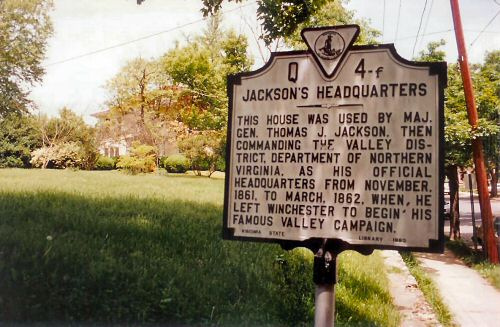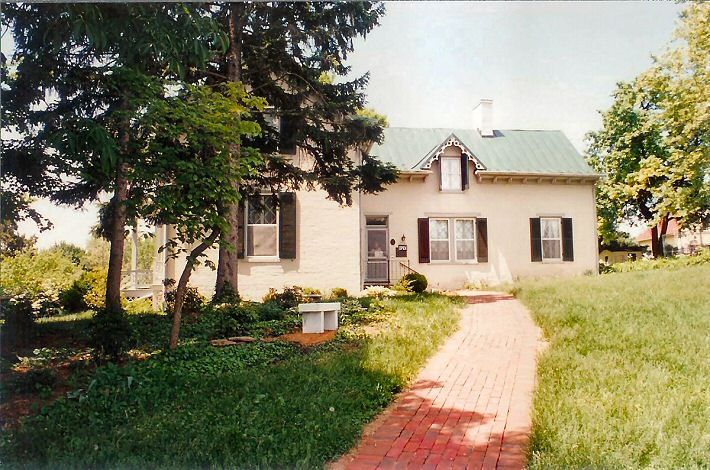|
(1980's) Side
view of the Moore House and tourist entrance
The Stonewall Jackson's Headquarters
Museum was an antebellum home owned by Lt. Col. Lewis Tilghman Moore,
commander of the 31st Virginia Militia. Later, while commanding the 4th
Virginia Infantry, Colonel Moore offered his home at 415 North Braddock
Street, Winchester, Virginia, USA, to serve as the headquarters for
Confederate Maj. Gen. Thomas J. "Stonewall" Jackson.
Jackson lived in the home from November 1861 to March 1862, and was
joined by his wife, Mary Anna, in December 1861.
Jackson arrived shortly after taking command of the new Valley District of
the Department of Northern Virginia. From this
location, Jackson planned his Shenandoah Valley defenses and campaigns,
starting with the Romney Expedition.
The home is a gothic revival style cottage built in 1854 for William
Fuller, was named "Alta Vista", and had a beautiful view over open
hillsides facing east across Winchester. While living here, the Jacksons
became very fond of the people and culture of Winchester, and referred to
it as their "winter home", hoping to settle here after the American Civil
War. In the 1960s the home was purchased and converted into a museum, and
includes many possessions and artifacts belonging to Stonewall Jackson. In
a letter to Mary, Stonewall Jackson commented:
"The situation is beautiful, the building is of a
cottage style and contains six rooms. I have two rooms, one above the
other. The lower room, or office, has a matting on the floor, a large fine
table, six chairs, and a piano. The walls are papered with elegant gilt
paper. I don't remember to have ever seen a more beautiful papering, and
there are five paintings hanging on the walls. ģ The upper room is neat,
but not a full story and ģ remarkable for being heated in a peculiar
manner, by a flue from the office below. Through the blessing of our
ever-kind Heavenly Father, I am quite comfortable."
One of Lt Col Moore's descendants actress Mary Tyler Moore, who has
helped pay for restorations of the home for the museum - including replica
wallpaper matching the original to which Jackson referred.
Courtesy of
Wikipedia,
the free encyclopedia
 |
